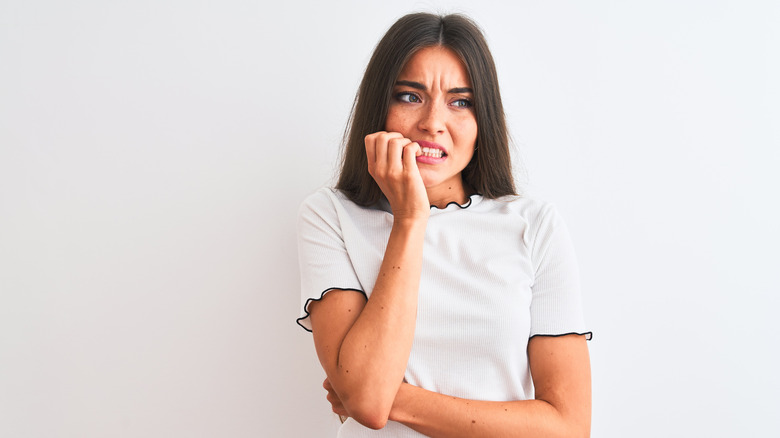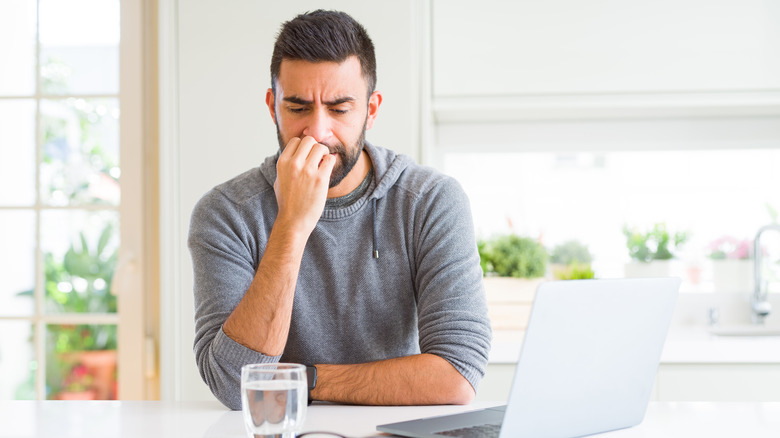What Happens To Your Body When You Bite Your Nails Every Day
Nail-biting is a common habit among many people and especially among children. Our parents always told us to stop biting our nails, but why was it such a big deal? Turns out, biting your nails can cause more than unsightly cuticles and chipped nail polish.
"Nail biting is very risky right now as we know the [coronavirus] can live on surfaces, such as your nails, and is most commonly transmitted to your face by touching your face," Purvi Parikh, MD, adult and pediatric immunologist and an allergist at NYU Langone Health in New York City, told The Healthy. "So if you are biting your nails you are risking ingesting not only the virus, but other bacterial and viral pathogens."
Biting your nails puts you at risk of developing a host of illnesses including colds, the flu, and even ringworm. Think about everything you touch in a day. Door handles, books, cash, pets, your phone, and who knows what else. Even in an age of frequent hand washing and hand sanitizer, germs can get caught under your nails and live there until they jump into your mouth when you nibble on your nail.
Daily nail-biting can also point toward an underlying health condition
While there are some people who bite their nails absentmindedly on occasion, most people develop this habit as a way to cope with something else. "Most people bite their nails to seek comfort or relief from a negative emotional state, such as distress, shame, anxiety, or boredom," Mary Lamia, Ph.D., clinical psychologist and professor at the Wright Institute in Berkeley, CA, told Self. "In a sense, nail-biting attacks the self, which tends to result in publicly exposing one's feelings of shame and of disgust about the self."
The first step to stop biting your nails is to figure out why you developed the habit. Try to pay attention to what's happening in your life when you find yourself chewing on your nails. Are you heading into a stressful work meeting? Are you thinking about finances? Are you tired or bored? You may want to speak with a therapist about the issue. They will be able to help you find the root of this habit and help you explore techniques for quitting.


